
Sven Olof Joachim Palme (; Swedish:

Alva Myrdal ( MUR-dahl, MEER-, Swedish:

Gösta Ingvar Carlsson is a Swedish politician who twice served as Prime Minister of Sweden, first from 1986 to 1991 and again from 1994 to 1996. He was leader of the Swedish Social Democratic Party from 1986 to 1996. He is best known for leading Sweden into the European Union.
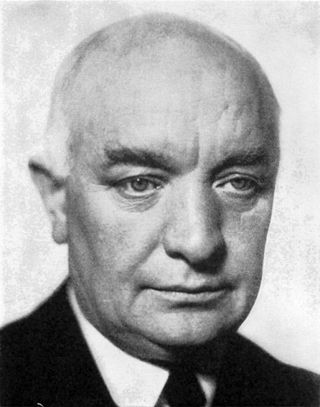
Per Albin Hansson was a Swedish politician, chairman of the Social Democrats from 1925 and two-time Prime Minister in four governments between 1932 and 1946, governing all that period save for a short-lived crisis in the summer of 1936, which he ended by forming a coalition government with his main adversary, Axel Pehrsson-Bramstorp.

The Swedish Social Democratic Party, formally the SwedishSocial Democratic Workers' Party (Swedish: Sveriges socialdemokratiska arbetareparti

The Stockholm School is a school of economic thought. It refers to a loosely organized group of Swedish economists that worked together, in Stockholm, Sweden primarily in the 1930s.

Tage Fritjof Erlander (Swedish:
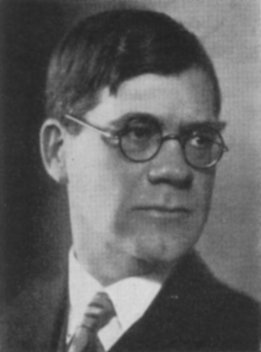
Bo Östen Undén was a Swedish academic (J.D.), civil servant and Social Democratic politician who served as acting Prime Minister of Sweden 6–11 October 1946, following the death of Per Albin Hansson (1885-1946).

Karl Gunnar Myrdal ( MUR-dahl, MEER-; Swedish:
Volksgemeinschaft (German pronunciation:
[[Help:IPA/Standard German|
Ernst Johannes Wigforss was a Swedish politician and linguist (dialectologist), mostly known as a prominent member of the Social Democratic Workers' Party and Swedish Minister of Finance. Wigforss became one of the main theoreticians in the development of the Swedish Social Democratic movement's revision of Marxism, from a revolutionary to a reformist organization. He was inspired and stood ideologically close to the ideas of the Fabian Society and guild socialism and inspired by people like R. H. Tawney, L.T. Hobhouse and J. A. Hobson. He made contributions in his early writings about industrial democracy and workers' self-management.

Johan Rudolf Kjellén (Swedish:
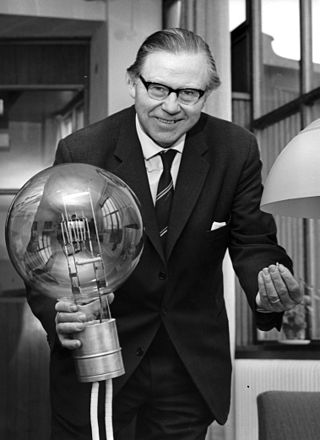
Gunnar Georg Emanuel Sträng was a Swedish Social Democratic politician, most known for being Sweden's longest serving minister for finance.
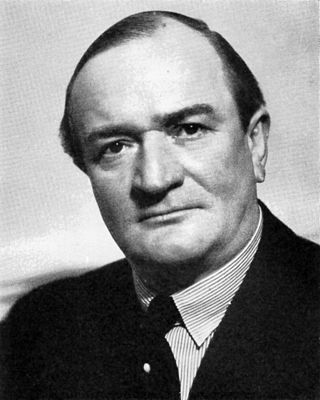
Gustav Möller was a prominent Swedish Social democratic politician, credited as the father of the social security system and the Welfare state, also called Folkhemmet. He was a Member of Parliament in 1918-1954 and Member of the Government in 1924–26, 1932–36 and 1936–51.

The Stockholm Exhibition was an exhibition held in 1930 in Stockholm, Sweden, that had a great impact on the architectural styles known as Functionalism and International Style.
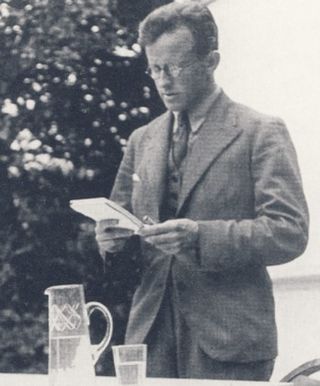
Uno Åhrén was a Swedish architect and city planner, and a leading proponent of functionalism in Sweden.

Crisis in the Population Question was a 1934 book by Alva and Gunnar Myrdal, who discussed the declining birthrate in Sweden and proposed possible solutions. The book was influential in the debate that created the Swedish welfare model.
Social corporatism, also called social democratic corporatism, is a form of economic tripartite corporatism based upon a social partnership between the interests of capital and labour, involving collective bargaining between representatives of employers and of labour mediated by the government at the national level. Social corporatism is present to a lesser degree in the Western European social market economies. It is considered a compromise to regulate the conflict between capital and labour by mandating them to engage in mutual consultations that are mediated by the government.
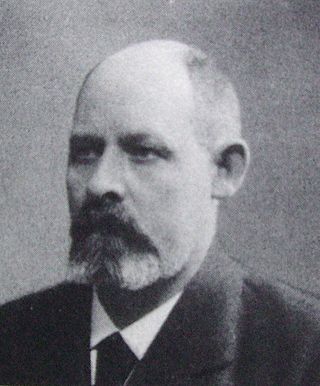
Fredrik Vilhelm Thorsson was a Swedish politician and shoemaker. He was Minister for Finance during three separate periods, and Minister of Commerce and Industry in 1920.
The first cabinet of Tage Erlander was the cabinet and government of Sweden between 11 October 1946 and 1 October 1951. It was formed following the sudden death of Prime Minister Per Albin Hansson on 6 October 1946.





















